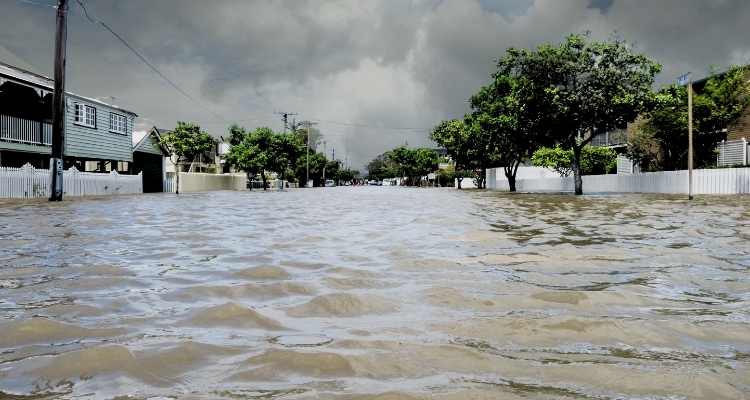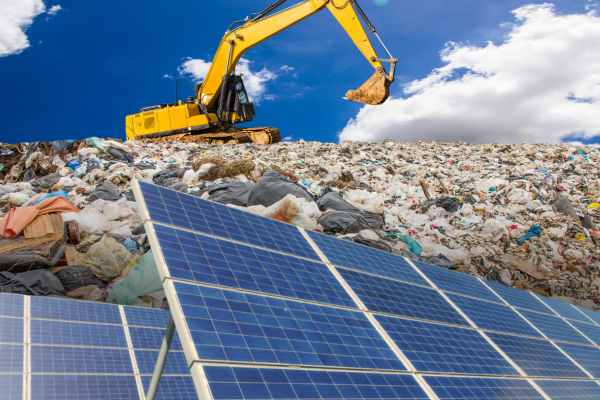Green transition key to prosperity
Delaying climate action based on its financial costs is no longer a viable strategy say economic experts.

The economic counter-arguments that have undermined Australia's shift to a low-carbon future could be groundless according to a new report.
Released this month by the OECD and the United Nations Development Programme (UNDP), the joint report says ambitious climate targets will actually open up economic opportunities and unlock investment.
According to the report, these benefits extend beyond simple economics – and aligning climate policies with economic and social priorities could reap higher global gross domestic product (GDP), reduce poverty, boost energy security and improve community health outcomes.
"This report shows that the transition towards cleaner, greener economies can actually spur GDP growth – not hinder it,” UNDP administrator Achim Steiner said. “As we look to the future, it is clear that green economies will drive industry, mobility, energy systems, and more."
In addition to this are the economic and social benefits of avoiding critical climate tipping points "such as melting ice sheets or reversing ocean circulation patterns – that could trigger irreversible and severe changes to the climate system," the report says.
"As we look to the future, it is clear that green economies will drive industry, mobility, energy systems, and more."
The cost of disaster
Recent analysis by Bloomberg Intelligence found that in the US nearly US$1 trillion was spent on disaster recovery and other climate-related costs over the 12 months to May 1, amounting to over 3% of GDP.
Australians are projected to face total costs of $13.5 billion for extreme weather events based on forecasts from the 2025 Federal Budget strategy and outlook. According to the Climate Council, this underscores the need to spend more on permanent solutions that better protect Australians.
"The massive hit to the budget from recent Tropical Cyclone Alfred – supercharged by dangerous climate pollution – is expected to cost taxpayers about $1.2 billion," Climate Council CEO Amanda McKenzie said.
"The good news is that measures like investing in access to rooftop solar backed up by batteries – that cut climate pollution – also provide Aussies with cheaper, reliable power for years to come. It’s far less expensive than constantly cleaning up the mess of worsening disasters."

Mandatory reporting
These reports come as sustainability legislation tightens In Australia, with voluntary reporting scrapped for larger organisations and replaced with mandatory climate reporting in 2025. Under the legislation, companies must not only disclose their emissions but also determine how the impact of a warming planet could impact their balance sheets.
With the past ten years globally recorded as the ten hottest on record, a joint statement issued by prominent Australian business and finance groups said Australia’s future prosperity now relied on climate policy certainty.
"The physical effects of climate change are already evident here and around the world, underscoring the urgency of action," the statement said.
"Acting to limit climate change and its impacts makes good financial sense. According to the world’s central banks’ mid-range estimate, global GDP would be 7 per cent higher in 2050 if emissions fall steadily to net zero, rather than if today’s climate policies get no stronger."
It added that this difference could be even higher over the longer term with the range of credible estimates including a global GDP benefit of 25 per cent by mid-century, and 50 per cent by 2090.
Sustainability sells
Public support for businesses and governments taking genuine climate action has also emerged as a mainstream issue for consumers. A study published last year by the scientific journal Nature uncovered widespread support for climate solutions, with 89 per cent of people wanting to see more political action based on a representative survey of 125 countries.
Nearly half of Australian consumers now actively take sustainability into account in some form when making purchasing decisions, according to a 2024 report from the Australian Consumer and Retail Studies (ACRS) Unit at Monash Business School.
The Monash report found that 96 per cent of Australian consumers engaged in sustainable practices, with 42 per cent willing to pay more for sustainable choices.
"While sustainability perceptions and practices may differ amongst shoppers, the positive shifts in the general attitudes and behaviours of shoppers demonstrate that sustainability is no longer a trend but a consumer movement," Monash Senior Lecturer Dr Eloise Zoppos said.





